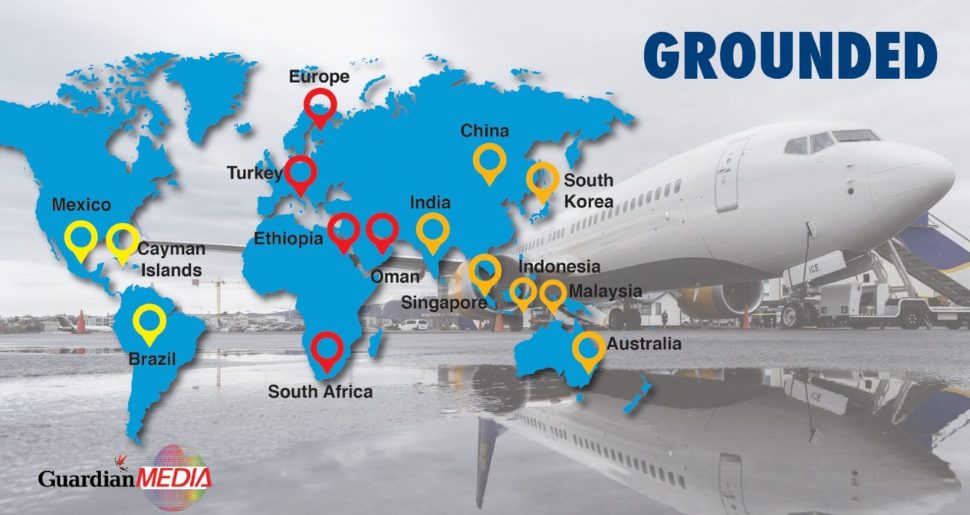(Trinidad Guardian) Even as dozens of countries around the world imposed restrictions on the Boeing 737 Max 8, American Airlines continues to operate the aircraft on its routes between T&T and the United States on Tuesday.
This was cause for concern among passengers at Piarco International Airport who were booked on American Airlines flights.
Some of them said they are worried about their safety and complained that the airline had not been upfront with them about the situation.
The Max 8 is at the centre of a growing global ban by more than 40 countries following a second fatal crash, this time in Ethiopia, in less than five months. The Ethiopian disaster came just five months after the deadly crash of another new Boeing 737 Max 8 operated by Lion Air in Indonesia.
Preliminary information released by Indonesian investigators suggests they are looking at the possible role of the Max’s new automated anti-stall technology as a factor in a Lion Air crash, in October, shortly after takeoff from Jakarta. Data indicates that the pilots struggled with repeated nose-down commands from the plane before it crashed into the Java Sea and killed 189 people.
However, American Airlines officials yesterday expressed confidence in the airworthiness of their fleet. In response to emailed questions from Guardian Media, officials at the airline’s headquarters in Fort Worth, Texas, in the United States, said: “At this time there are no facts on the cause of the accident other than news reports.”
The airline said in its statement, “Our flight, flight service, tech ops and safety teams, along with the Allied Pilots Association (APA) and Association of Professional Flight Attendants (APFA), will closely monitor the investigation in Ethiopia, which is our standard protocol for any aircraft accident.”
The airline said they continue to collaborate with the FAA and other regulatory authorities, as the safety of our team members and customers is our number one priority, and assured that their crew members are the best and most experienced in the industry.
Since the Ethiopian Airlines crash on Sunday, several airlines have stopped using the Boeing 737 Max 8, including Gol Airlines of Brazil, Cayman Airways, Ethiopian Airways, Jet Airways of India, Aeromexico, Norwegian Air Shuttle, Turkish Airlines, Eastar Jet of South Korea, Smartwings of the Czech Republic and LOT of Poland.
Contacted for comment, Ramesh Lutchmedial, an aviation safety consultant and former Director General of the Civil Aviation Authority (CAA), said it was premature to comment as “there is no conclusive evidence” on what caused the Lion Air and Ethiopian Airlines crashes, both of which involved Max 8 aircraft.
T&T is custodian of the Piarco Flight Information Region (FIR) which encompasses 750,000 square miles of airspace that is host to nine states and 24 international aerodromes. With a decision still pending as to whether the aircraft will be banned from this country’s airspace, Lutchmedial said any decision made will not only affect T&T but the member states that operate within the Piarco FIR—Antigua, Guadeloupe, Dominica, Martinique, St Lucia, St Vincent and the Grenadines, Barbados and Grenada.
He said the decision will only be made if there is a just cause for doing so and will require sanctioning from the Minister of Works and Transport Rohan Sinanan.
In a statement in the Senate yesterday, Sinanan said the CAA is monitoring the situation and he will be guided by their advice.





